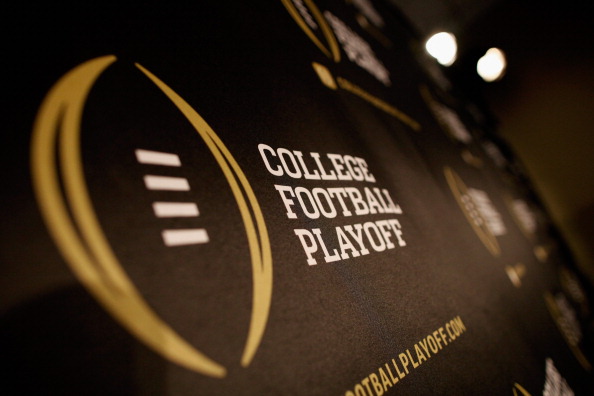When you really think about it, the College Football Playoff as it stands isn’t that much better than the BCS.
Sure, it ensures that the two or three teams that really deserve to be in consideration for the national championship get their shot. And yes, it gives that fourth team a chance to play for the title as well where such a thing was unheard of.
But at the end of the day, it didn’t spike the ball in the endzone as much as it punted the problem down the field a few yards. The BCS courted controversy in its two available bowl slots. The CFP welcomes that same controversy over all four slots and the seeding. It’s just as prone to human error and misjudgment as the previous system and the one before that.
Expand the playoff to eight teams and you get closer to a fair system based solely on a team’s merits, but it’s still not all the way there.
Ultimately, so long as college football continues to work from the region-based setup it honed in the days long before five-star recruiting and billion-dollar TV deals, whatever champion-determining system sits atop the house of cards is just as prone to fail as the previous version.
But let’s be clear. Providing a fair and balanced way to determine the college football national champion was never the point anyway. The College Football Playoff was about figuring out how to wring a few more million dollars out of a sport played by unpaid players. And in that sense, the CFP is working brilliantly.
Long before the season ends, the CFP Rankings released after each weekend’s action is like a snowball gaining strength as it rumbles down the mountain towards December. The one-hour playoff show usually does a million to 1.5 million viewers as it gets closer and closer to the final reveal. And the effect of those rankings branches out across the entire sport. Every team within striking distance of a playoff spot sees a ratings bump. College football in general gets to ride the rising ratings tide in a way the NFL can’t ever do because it determines its playoff teams in a much fairer, clearer way.
Not to mention the way the CFP affects sports talk radio, TV debate shows, and even sports websites more than happy to prognosticate about the potential playoff teams. Just like the BCS before it, the Bowl Coalition before that, and the Bowl Alliance before that, it’s about how the interest generated in potential can drive ratings and media attention way more than a desire to figure out definitively who the best two teams are.
Yes, there are tangible effects on the sports itself. Just ask the Big 12 how not having a conference championship game is working out for them when they fail to have a team in the football final four for the second time in three years this season. The need to ensure a high spot in the CFP rankings has led to some teams improving its non-conference scheduling, which means better games for fans to enjoy.
But at the end of the day, does the College Football Playoff get it correct with its four selections? Just like the BCS, it probably won’t most of the time. When you’ve got an arbitrary regular season where conferences play by different rules and there’s little uniformity in terms of scheduling, it doesn’t really matter who decides which teams play for the title. That it has to be a decision in the first place is always going to be a problem.
Besides, that’s not the point. It never was. It was about goosing ratings and fan interest in college football. And aside from a dumb idea to put games on New Year’s Eve, it’s working splendidly.
The truth is, you probably don’t have a problem with any of this. At least not until it’s your one-loss team on the outside looking in. Then you’ll be mad as hell, but by then you’ll have spent the last few months consuming college football content en masse on ESPN or FS1 or Twitter or your radio dial. As for who makes it, who wins, and who loses? That was never the point to begin with.








Comments are closed.